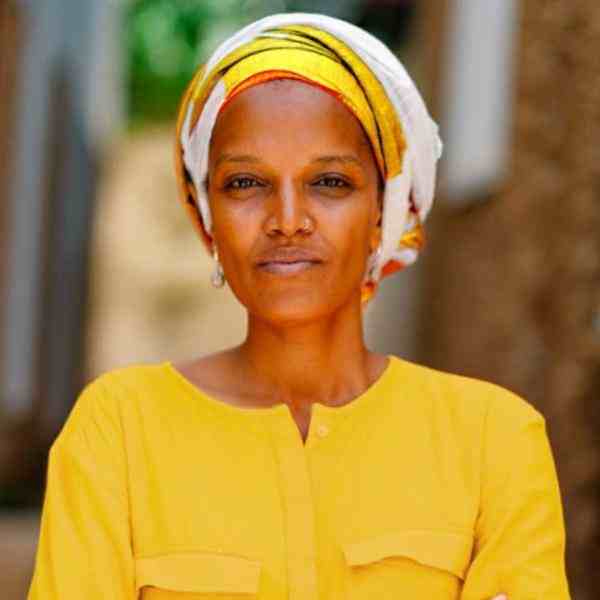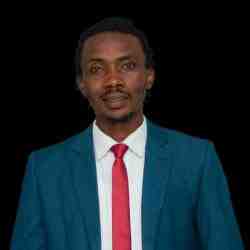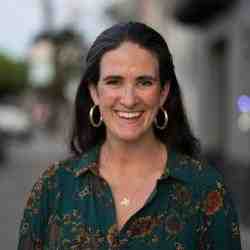Introduction
Umra is at the forefront of transforming healthcare in remote Kenya, delivering high-quality services directly to underserved communities. Through youth health ambassadors leading outreach and mobile clinics, she is forging a future where equitable healthcare access knows no boundaries.
The New Idea
Unlike conventional healthcare models in Kenya that solely focus on erecting physical infrastructure and providing curative care or one-off care by specialists, Umra is bringing high-quality healthcare resources on a regular weekly and monthly basis to serve very remote areas of Kenya, starting with Lamu. Through a blend of young people leading outreach and service delivery to their communities, mobile clinics, and partnerships to secure resources from other providers, Umra and Safari Doctors are pioneering a model of healthcare delivery to remote, under-served communities.
Umra's approach begins with the active involvement of Youth Health Ambassadors. Through the active involvement of these ambassadors, Safari Doctors leverages a previously underutilized resource to not only identify health disparities but also extend vital services to communities that were once beyond reach. Umra recognizes that young people from these communities possess an unparalleled understanding of their surroundings and are deeply trusted by their community. By working with these young adults aged 18-25, she gains invaluable insights while also providing them with opportunities for personal and professional growth, ultimately fostering a new generation of changemakers.
Secondly, Umra brings health care to communities, rather than the traditional approach of having them come to hospitals or health care dispensaries. She does this by addressing the core infrastructure challenges of remote areas like Lamu through mobile clinic operations and by finding pathways into otherwise skeptical pastoralist communities, including providing veterinary services as a door into human health care needs. Umra also places a pronounced emphasis on preventive healthcare measures. Through comprehensive educational outreach during communal gatherings and events, communities are now equipped with knowledge, enabling proactive health management and disease prevention. This proactive stance stands in stark contrast to reactive healthcare models prevalent in many of these areas.
Finally, strategic partnerships further distinguish Umra’s approach. She has forged alliances with county government, pharmaceutical companies, legal organizations, and other NGOs and brought all these key players in the ecosystem to work together to make this possible.
The Problem
The remote regions of Kenya and many other parts of Africa face significant challenges in accessing healthcare. The primary issues encompass geographical isolation, limited infrastructure, lack of access to medicines and healthcare personnel, and deep-seated cultural beliefs. These challenges intersect to create barriers that hinder residents' ability to receive timely and appropriate healthcare services, perpetuating health disparities and worsening existing inequalities.
Geographical isolation and inadequate infrastructure present formidable barriers to healthcare access in remote regions. Historical neglect has resulted in insufficient investment in transportation infrastructure, leading to poor roads and limited connectivity to major transportation networks. As a result, residents face challenges in reaching healthcare facilities, which are made worse during emergencies or urgent medical needs.
The lack of access to preventive and curative medicines compounds the healthcare challenges in remote areas. Basic medications, including those provided free by the government, are often unavailable in these regions. Additionally, there is a critical shortage of healthcare personnel, including doctors, nurses, and medical professionals, further compromising the quality and accessibility of healthcare services. Long wait times and limited access to medical expertise contribute to residents' difficulties in obtaining necessary healthcare.
At the core of these challenges lies a fundamental misunderstanding of how to effectively reach and serve remote communities. Traditional delivery of healthcare has failed to work in remote areas such as Lamu. NGOs (both local and international) and the county governments have failed to solve this challenge. Deep-seated traditional beliefs and cultural practices influence healthcare-seeking behavior leading residents to prefer traditional remedies over modern medical care even when modern healthcare facilities are available. This preference, rooted in cultural norms and historical mistrust of colonial healthcare systems, perpetuates a cycle of inadequate healthcare utilization, and worsens health disparities.
The Strategy
Umra’s approach to community-centered care delivery reflects a fundamental understanding that health services must reach people when the people cannot easily access them. Unlike conventional models that require communities to travel to healthcare facilities, Umra brings healthcare services directly to the doorsteps of remote communities, particularly those in areas like Lamu where infrastructure is a challenge. Through the implementation of mobile clinic operations, Umra ensures that vital healthcare resources are accessible even in the most isolated regions. These mobile clinics serve as lifelines, reaching 40 remote villages monthly, bridging the gap between underserved communities and essential medical care. Umra is currently scaling this approach to two counties, Garissa and Tana River, with a mission to reach all 47 counties in Kenya.
In addition to mobile clinics, Umra employs innovative entry points to gain trust and access within these communities, which are mostly pastoralists. One such approach involves providing veterinary services, recognizing that addressing the healthcare needs of livestock serves as a gateway to addressing human health concerns. This strategic approach not only fosters trust but also facilitates access to communities that have previously been hesitant to engage with healthcare providers.
Another strategy is the utilization of Youth Health Ambassadors. Umra's approach starts with a deep understanding of the challenges faced by young people, who comprise the largest demographic in these communities. Recognizing the prevalence of unemployment and limited access to education among youths aged 18-25, she actively seeks out these individuals, often out of school and lacking opportunities. Once identified, Umra provides comprehensive training to these young adults, covering various aspects of preventive health, from nutrition and hygiene to environmental and sanitation practices. Armed with this knowledge, the youth health ambassadors become agents of change within their communities, transferring their expertise to their peers and community members through channels such as community meetings, workshops, and door-to-door outreach. Leveraging their trusted status within the community, Youth Health Ambassadors play a pivotal role in driving mindset shifts and fostering the transformation of cultural norms and beliefs around healthcare.
Importantly, Umra's program not only focuses on health-related training but also offers opportunities for personal and professional growth to the youth health ambassadors. By taking on leadership roles and actively participating in community development initiatives, they gain valuable skills and experiences that contribute to their personal development. This dual focus on health education and capacity building cultivates a new generation of community leaders equipped to address health disparities and drive broader positive change within their communities. Umra has trained 227 Youth Health Ambassadors successfully completing the program. In 2022, the YHA’s engaged 5,365 people. This number increased to 10564 engaged people in 2023. Through a partnership with the Lamu County Department of Health, 70 of the Youth Health Ambassadors were accredited as Community Health Workers (CHWs), who conduct monthly household visits and capture digital health data that can strengthen county data collection.
Furthermore, Umra's model places a strong emphasis on preventive healthcare measures. Through comprehensive educational outreach during communal gatherings and events, community members are empowered with knowledge for proactive health management and disease prevention. By prioritizing prevention over reactive care, reducing the burden of illness and promoting overall community well-being.
The impact of Umra's community-centered care delivery model is evident. By bringing healthcare services directly to communities, Umra has significantly reduced casualties by 85%. Moreover, strategic partnerships with referral hospitals, such as Bomu Hospital in Mombasa, ensure that patients in need of specialized care receive appropriate treatment beyond the scope of mobile clinics. Through collaboration, Umra ensures continuity of care and facilitates seamless transitions for patients requiring advanced medical attention. Currently, Umra is building a level 4 hospital in Lamu town in collaboration with Bomu Hospital, bringing a much closer referral center to these areas. This will significantly reduce how much time was previously spent accessing referral services which were 245 kilometers away.
Umra has also engaged 58 representatives from 138 indigenous women's groups from these villages through the creation of the Indigenous Voices civic education program. This program enhances women’s capacity to actively participate in County health budget processes, shape policy decisions, and advocate for the enhancement of health service delivery ensuring their voices are heard and their needs addressed. This engagement has effectively prompted the County government to start addressing infrastructure challenges and other barriers hindering access to healthcare.
The Person
Born on Pate Island within the Lamu archipelago, Umra Omar's upbringing was deeply influenced by the struggles of living in a marginalized community where gender equality and access to healthcare were scarce commodities. Witnessing firsthand the challenges her community faced, Umra developed a profound sense of responsibility and a drive to effect positive change. Her journey took a pivotal turn when her younger sister fell critically ill with meningitis. The ordeal of seeking medical treatment, including a challenging journey to Nairobi, about 500km away due to inadequate local facilities, exposed Umra to the realities faced by her community, igniting her determination to address systemic healthcare issues.
During her college years, Umra raised money through the GoMakeADifference (GOMAD) program. She utilized resources from this project to create awareness about HIV/AIDS in Kenya. After completing her studies in neuroscience and psychology in the United States, Umra found herself in a high-paying job in Washington D.C., seemingly distant from the struggles of her homeland. However, a visit back home in 2014 served as a wake-up call reigniting her sense of purpose after encountering a medical project in Lamu that was abandoned due to security concerns.
Umra then made the bold decision to leave her lucrative career and return to Kenya to confront these challenges facing her community. In December 2014, she founded Safari Doctors, aiming to revolutionize healthcare delivery in remote regions. Leveraging her academic background, entrepreneurial acumen, and intimate understanding of the local context, Umra embarked on a mission to revolutionize healthcare delivery in remote regions of Kenya.
Umra's transformative work with Safari Doctors garnered widespread recognition. She was honored as a Top 10 CNN Hero in 2016, named the UN Person of the Year in Kenya in 2017, and celebrated as a World Economic Forum Young Global Leader and Aurora Forum Goodwill Ambassador.




